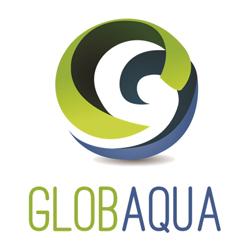Water and water-related services are major components of the human wellbeing, and as such are major factors of socio-economic development in Europe; yet freshwater systems are under threat by a variety of stressors (organic and inorganic pollution, geomorphological alterations, land cover change, water abstraction, invasive species and pathogens. Some stressors, such as water scarcity, can be a stressor on its own because of its structural character, and drive the effects of other stressors. The relevance of water scarcity as a stressor is more important in semi-arid regions, such as the Mediterranean basin, which are characterized by highly variable river flows and the occurrence of low flows. This has resulted in increases in frequency and magnitude of extreme flow events. Furthermore, in other European regions such as eastern Germany, western Poland and England, water demand exceeds water availability and water scarcity has become an important management issue.
Water scarcity is most commonly associated with inappropriate water management, with resulting river flow reductions. It has become one of the most important drivers of change in freshwater ecosystems. Conjoint occurrence of a myriad of stressors (chemical, geomorphological, biological) under water scarcity will produce novel and unfamiliar synergies and most likely very pronounced effects. Within this context, GLOBAQUA has assembled a multidisciplinary team of leading scientists in the fields of hydrology, chemistry, ecology, ecotoxicology, economy, sociology, engineering and modeling in order to study the interaction of multiple stressors within the frame of strong pressure on water resources. The aim is to achieve a better understanding how current management practices and policies could be improved by identifying the main drawbacks and alternatives.
LMU’s Department of Geography has a leading role in the Work Package (WP) “Scenarios”. Scientist of the Department of Geography will produce scenarios of climate, socio-economy and land use in a spatially-explicit mannerto be used by the WPs in the modules STRESSORS (WP3-HYDROL, WP4- GEOMORPH) and RECEPTORS (including modelling) for the GLOBAQUA case studies in river catchments: Adige (Italy),Sava (Slovenia, Croatia, Bosnia-Herzegovina, Serbia), Ebro (Spain), Evrotas (Greece), Anglian (UK) and Souss Massa (Tunisia).
Further this WP will indirectly set the frame for the impact on ecosystem functioning and services (WPs 7 and 8) and will deliver the boundary conditions for, and interactions with the IMPLICATIONS module, including the socioeconomic development (WP9-SOCIOECON) and ecosystem services valuation (WP10-VALUATION). LMU’s work is situated at the heart of GLOBAQUA and the prerequisite to assess the long-term effects of global change on the regional scale of GLOBAQUA’s case studies.
- Fachgebiet
- Fernerkundung, Geo-Informationssysteme, Geographische Entwicklungsforschung, Geographische Gesellschaft-Umwelt-Forschung, Hydrologie, Hydrologische Modellierung, Klimatologie, Landschaftsökologie, Modellierung
- Laufzeit
- 02/2014 - 01/2019
- Gefördert durch
- Europäische Union
- Förderkennzeichen
- 603629
- Projektleitung
- -
- Projektwissenschaftler
- Dr. David Gampe

